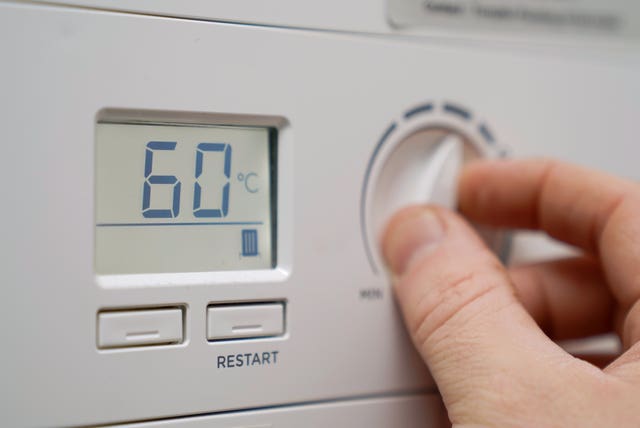
Electric heating systems such as heat pumps “exist now” and need to be installed rather than waiting for other solutions which are unproven, the new boss of E.On has said.
Chris Norbury, who leads the energy company in the UK, said that it was important to “have an open mind” to all technologies which can heat homes without producing carbon emissions.
But the focus should be systems that can be used now, rather than in decades from today.
“We have to have an open mind to all technologies that give us the opportunity to drive the energy transition,” he told the PA news agency.
 Britons will have to choose new ways of heating their homes (Andrew Matthews/PA)
Britons will have to choose new ways of heating their homes (Andrew Matthews/PA)
“In terms of the opportunity to electrify heating and homes, it is there now. The technology exists now. You don’t have a long period of time which you have to wait before you can act.
“Therefore, for us, our focus is very much on the opportunity we have in front of us now to decarbonise heating, to make energy more affordable, through a greater degree of electrification.”
He added: “Addressing the climate crisis is not something that can wait 10 years.”
READ MORE: Harvie calls for UK action so heat pumps lead to lower energy bills
The words came in response to a question about the at times heated debate between advocates of heat pumps – a way of heating your home with electricity – and those who think that hydrogen, a gas, should be burnt in homes to heat them.
At the moment, a majority of the UK’s homes are heated by burning natural gas. But this is a fossil fuel and burning it causes carbon emissions as well as releasing chemicals which can be unhealthy to breathe in.
There are several potential solutions which their proponents can help the UK meet its climate targets.
One is so-called district heating networks, which work best in cities, where people in big buildings, or even whole neighbourhoods, all share hot water.
Another option is heat pumps. These work like a reverse air conditioner, and can be very energy efficient.
Critics of heat pumps point to two weaknesses: They are not always as efficient in poorly insulated homes, which are common in Britain, and it is more difficult to install them in some buildings, such as blocks of flats.
The other option is hydrogen, which does not produce carbon emissions when it burns.
READ MORE: Harvie urged to halt heat pumps strategy and back electric boilers
Those who oppose the use of hydrogen point to the fact that the technology is unproven at scale, that most hydrogen is produced from natural gas so still emits a lot of carbon, and that producing hydrogen in an environmentally friendly way requires many times more electricity than just using that electricity directly to heat homes.
“Is the electrification of heating the right thing to do? Both in terms of the ability to decarbonise heating, does it make energy more affordable for customers, and does it create good jobs? It does all of those things,” Mr Norbury said.



Why are you making commenting on The Herald only available to subscribers?
It should have been a safe space for informed debate, somewhere for readers to discuss issues around the biggest stories of the day, but all too often the below the line comments on most websites have become bogged down by off-topic discussions and abuse.
heraldscotland.com is tackling this problem by allowing only subscribers to comment.
We are doing this to improve the experience for our loyal readers and we believe it will reduce the ability of trolls and troublemakers, who occasionally find their way onto our site, to abuse our journalists and readers. We also hope it will help the comments section fulfil its promise as a part of Scotland's conversation with itself.
We are lucky at The Herald. We are read by an informed, educated readership who can add their knowledge and insights to our stories.
That is invaluable.
We are making the subscriber-only change to support our valued readers, who tell us they don't want the site cluttered up with irrelevant comments, untruths and abuse.
In the past, the journalist’s job was to collect and distribute information to the audience. Technology means that readers can shape a discussion. We look forward to hearing from you on heraldscotland.com
Comments & Moderation
Readers’ comments: You are personally liable for the content of any comments you upload to this website, so please act responsibly. We do not pre-moderate or monitor readers’ comments appearing on our websites, but we do post-moderate in response to complaints we receive or otherwise when a potential problem comes to our attention. You can make a complaint by using the ‘report this post’ link . We may then apply our discretion under the user terms to amend or delete comments.
Post moderation is undertaken full-time 9am-6pm on weekdays, and on a part-time basis outwith those hours.
Read the rules hereLast Updated:
Report this comment Cancel